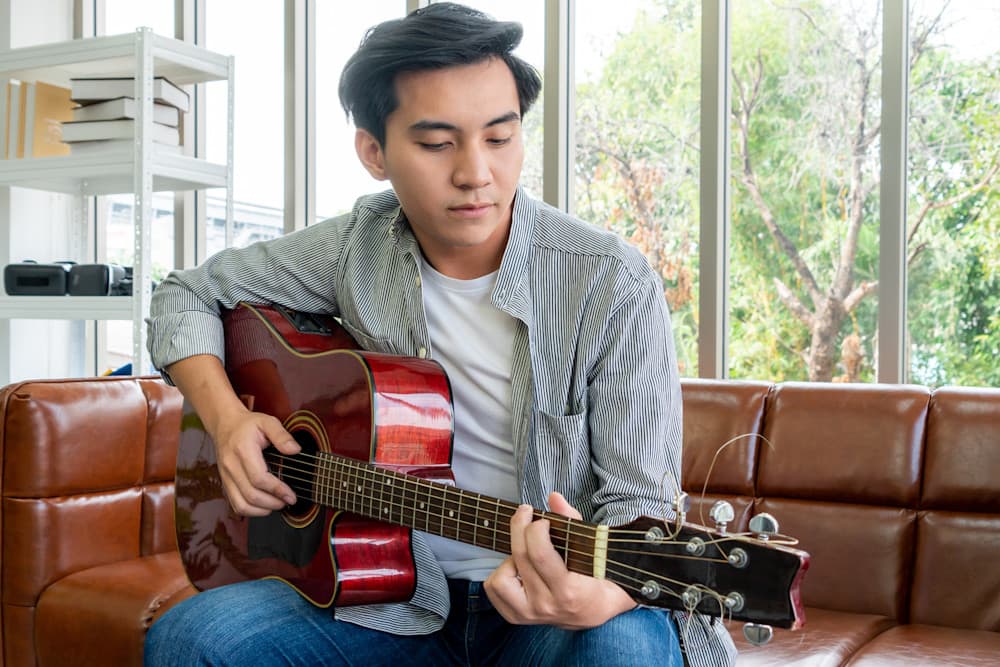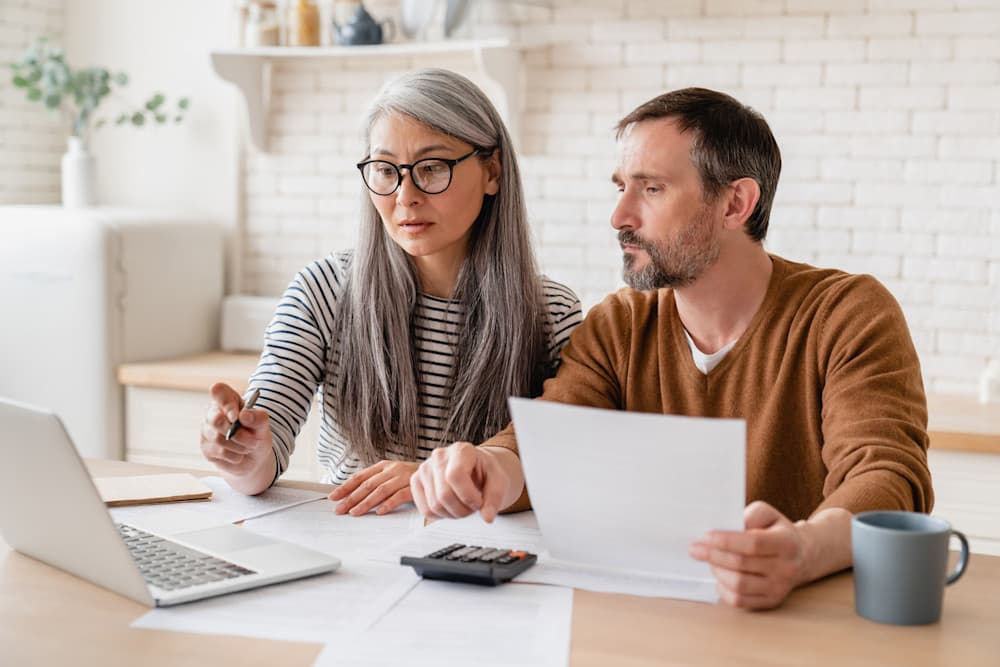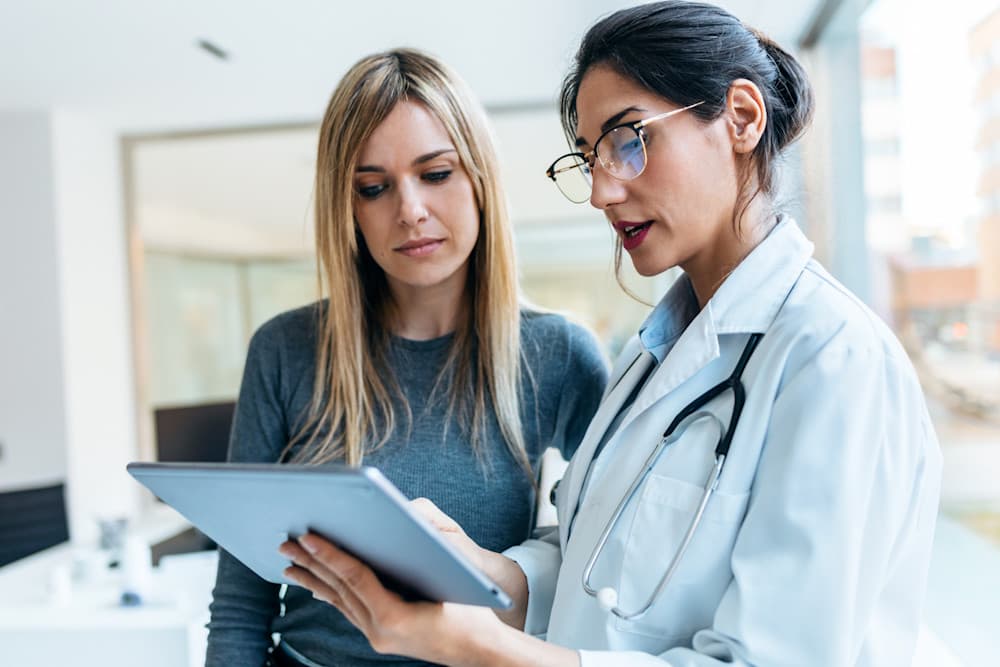Can You Get COVID-19 Twice? Here’s What You Need to Know

9 Minutes

Team Curative

Feb 19, 2021
After one year of facing the COVID-19 pandemic, with more than 24 million cases in the United States. and almost 400,000 deaths as of January 15, 2021 you may be wondering: can you get COVID twice?
The short answer: possibly, but more data is needed to fully understand COVID-19 reinfections. The Centers for Disease Control and Prevention (CDC) reports that cases of COVID-19 reinfection have been reported, but remain rare. However, as new strains of COVID are introduced, reinfection is increasingly likely. Even if someone has already developed antibodies following a COVID infection, with a new strain, there are new elements of the virus that the body has not yet encountered and therefore your body cannot be perfectly immune to new strains. Currently, the role that immunity plays in COVID-19 reinfection is still largely unknown. While one produces antibodies that aid in immunity following an initial infection, this immunity is not perfect and therefore it is difficult to say how long immunity might last. For those of you wondering “Can you get coronavirus twice?,” this blog post will examine what we know about COVID-19 reinfections.
Known Cases of COVID-19 Reinfections
As of January 15, 2021, with more than 94 million confirmed COVID-19 cases around the world, the BNO News COVID-19 reinfection tracker has reported 39 confirmed cases of reinfection with a suspected number of around 2,500 cases globally. The tracker reports the gender, age, and country of each confirmed infected person, as well as the date when the reinfection was reported, the severity of both infections, the time between both infections, and whether or not the patient recovered the second time. According to BNO News as of January 15, 2021, in 86% of the first COVID-19 infections, the patient reported having symptoms, and in 90% of the second COVID-19 infections, the patient reported having symptoms. On average, the COVID reinfection came 92 days after the first infection.
According to the Oxford Academic Journals, the first confirmed case of COVID-19 reinfection was reported in Hong Kong on August 24, 2020. A healthy 33-year-old man who first tested positive for COVID-19 on March 26th, 2020 was hospitalized after experiencing three days of symptoms, at which point the symptoms subsided. The patient was discharged from the hospital on April 15, 2020. During the first infection, he presented mild symptoms such as cough, sputum (mucous from the lungs), sore throat, fever, and headache. Months later, on August 15, 2020, the patient tested positive while going through an entry screening when traveling to Hong Kong from Spain with a layover in the United Kingdom. The 33-year-old man was hospitalized but didn’t show any symptoms during the COVID-19 reinfection.
According to The Lancet, in the U.S., the first confirmed case of COVID-19 reinfection was documented on August 28, 2020. In the state of Nevada, an immunocompetent 25-year-old man tested positive for COVID-19 through a PCR diagnostic test in April 2020. The patient tested positive again 48 days after the initial test, with two consecutive negative tests in between the two infections. Unlike the Hong Kong reinfection case, the American man experienced worse symptoms the second time he was infected with the virus, requiring oxygen support and hospitalization, which led to new questions about the immune system’s response to this new coronavirus.
Even though confirmed cases of COVID-19 reinfection are rare, they are evidence that you can get coronavirus twice. “It’s important to note that there are people who do get reinfected, and in some of those cases you get worse disease,” said Dr. Akiko Iwasaki, an immunologist at Yale University. “You still need to keep wearing masks and practice social distancing even if you have recovered once from this infection.”
It has been challenging for health experts and scientists to confirm cases of COVID-19 reinfection, because researchers need to look for notable differences in the genes of the coronavirus that caused both incidences before confirming a reinfection. Although COVID-19 testing is now more widely available in the U.S., many people don’t get a COVID-19 test unless they have noticeable symptoms or are hospitalized, which makes it hard to precisely account for or study reinfections.
What’s more, not all testing samples have been conserved for investigation to confirm COVID-19 reinfections, which is why many people who have been reinfected might not be accurately listed as such. Unless the second infection is worse than the first one, and patients need to be hospitalized, it can be hard to identify these cases. For example, the first globally-reported case of reinfection was only detected because of a required screening at the airport.
The Immune System and Re-infection: How Does It Work?
The immune system plays a major role in fighting COVID-19 infection, and it may help to understand what factors are at play in COVID-19 reinfection and immunity.
You can think of the immune system as soldiers fighting invaders that pose a threat to your body. The immune system is composed of organs, cells, and chemicals that protect the body from harmful microorganisms such as bacteria, viruses, parasites, and fungi. Once the body identifies a threat, the immune system responds by releasing specific cells to fight and destroy/neutralize the invader.
According to Johns Hopkins Medicine, There are two main categories of immune responses. The first is the innate (non-specific) immune response, which we are born with and acts as our first line of defense as soon as our body detects a foreign threat. The innate immune system responds by sending immune cells to the site of infection to help identify and destroy invaders while simultaneously working to prevent the invader from spreading to the rest of the body.
While the innate immune response is non-specific and therefore reacts to a broad category of pathogens, the acquired/adaptive immune response, the second line of defense, is a specific immune response that is tailored to fight specific pathogens. The first time we are infected with a certain pathogen (such as SARS-CoV-2), the acquired immune system produces antibodies with the innate immune system to protect the body from these specific invaders in case we encounter them again in the future. After the first exposure, the body will be better able to recognize and fight against the virus in the future.
Medical researchers suspect this is how your immune system may be able to provide (at least partial) immunity to a SARS-CoV-2 coronavirus reinfection, since the immune system can, in a sense, “remember” the first infection and is therefore better equipped to fight subsequent infections. This is why vaccinations are so helpful for preventing disease as they introduce inactive or weakened elements of a virus to help our body produce antigens without experiencing the full severity of a disease. This produces a “memory” of how to fight an infection so we can better fight the virus should infection occur in the future.
The adaptive immune system works like our own memory—some things we might remember for a very long time (i.e. active immunity), and some we forget quite easily (i.e. passive immunity). For example, measles is known to be very memorable; a one-time exposure to measles should be enough for your body to produce a lifelong immunity against this virus.
Taking Steps to Avoid COVID-19 Reinfections
Even if some level of immunity is achieved after being infected with COVID-19, it’s still important to be cautious about potentially spreading the virus to others. There is a chance you could be asymptomatic but still spread the virus to those who haven’t been infected yet. Health experts recommend that everyone follows the official guidelines to avoid new cases and reinfections, whether or not you have been previously infected with COVID-19. The CDC recommends the following:
Social distancing from others. Staying at least 6 feet away whenever possible.
Using a face covering for both nose and mouth. Reduce the risk of spreading the virus by airborne transmission or close contact.
Washing your hands frequently. Wash for at least 20 seconds with soap and warm water if possible. If not, you can use a hand sanitizer that contains 60% alcohol or more.
Avoiding crowded indoor spaces. It is recommended to avoid large gatherings whenever possible.
Covering coughs and sneezes. Use the inside of your elbow, a facial mask, or a tissue to avoid droplets spreading the virus.
Staying at home as much as possible. The safest way to combat this pandemic is to stay at home and separate from others if you feel sick, including those in your household.
Cleaning and disinfecting regularly. Disinfect “high-touch” surfaces such as door knobs, smartphones, or keyboards as much as possible.
How to Support Your Immune System to Prevent COVID-19 Reinfection
The immune system works hard to fight against invaders such as viruses and bacteria. We should do everything we can to help support a healthy immune system so our immune system can properly do its job to protect us from infection. A healthy immune system reduces the risk of serious complications from COVID-19, as chronic illnesses have been shown to increase the risk of more severe COVID-19 symptoms. Harvard Medical School recommends these healthy practices to support your immune system:
Getting proper sleep/rest
Prioritizing your mental health to alleviate stress
Eating nutrient-dense foods
Exercising regularly
Maintaining a healthy weight
Limiting alcohol consumption
Not smoking
Beyond living a healthy lifestyle, many nutrients can boost your immune system. Some research-backed nutrients that play an essential role in the immune system and can be found in food include: vitamin A, vitamin C, vitamin D, vitamin E, pre and probiotics, zinc, and selenium, While eating these nutrients can’t perfectly protect you from COVID-19 reinfection, they can help support a healthy immune system to give your body the best chance possible to remain healthy and fight off a reinfection if it occurs.
Should You Get a Vaccine if You’ve Already Had COVID-19?
Currently, the Food and Drug Administration (FDA) has granted two vaccines emergency use authorization: the Pfizer-BioNTech vaccine and the Moderna vaccine.
Health experts consider COVID-19 vaccination to be not only safe, but beneficial, for those who have had COVID-19 previously, since it’s unknown how long immunity lasts after being infected.
A sufficient adaptive immune response, gained from being previously infected, may vary from person to person, depending on the symptoms experienced, the severity of each case, the viral strain, and the viral load present in the body during infection. Until now, some evidence suggests that natural immunity might last a few months, but larger studies are required to understand why COVID-19 reinfections can happen. It is for this reason that getting the vaccine (artificial acquired/adaptive immunity), even after having a previous infection, can be beneficial to you in the future.
Get Tested for COVID-19 Today!
Broad access to COVID-19 testing is essential to prevent new cases and reinfections. Get tested today by scheduling a non-invasive, self-collected COVID-19 test near you, observed and directed by a healthcare worker.
Curative Inc. and its subsidiary, Curative Management Services LLC, engage with medical entities that provide vaccination services.
Sign up for our Newsletter
Table of Contents
Known Cases of COVID-19 Reinfections
The Immune System and Re-infection: How Does It Work?
Taking Steps to Avoid COVID-19 Reinfections
How to Support Your Immune System to Prevent COVID-19 Reinfection
Should You Get a Vaccine if You’ve Already Had COVID-19?








